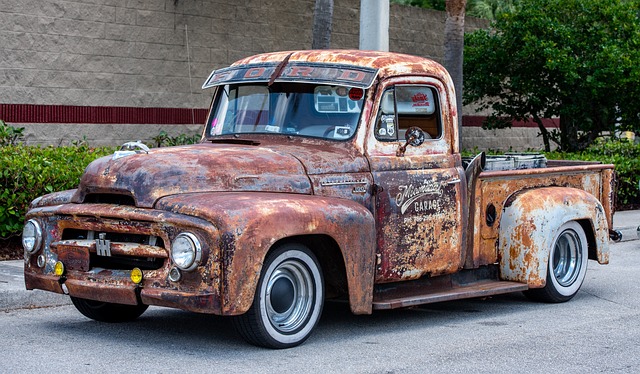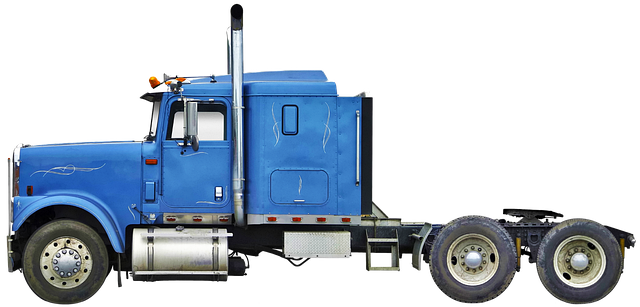Truck batteries play a pivotal role in the reliability and efficiency of long-haul trucks, given their heavy electrical loads from modern features like refrigeration and infotainment systems. High-quality truck batteries with suitable ampere-hour (Ah) ratings are necessary to handle the stop-and-go nature of long-haul routes and frequent charging needs. These batteries must be designed to withstand vibration, temperature extremes, and the rigorous demands of the road to ensure longevity and performance. Fleet operators should prioritize investing in truck batteries with a proven track record for high-demand scenarios to minimize downtime and sustain operational efficiency. When choosing battery solutions, factors like the truck's model, operational patterns, and specific power requirements must be considered. Group 34 or 27F truck batteries are often preferred due to their robust construction and high cranking power. Advanced AGM or AGM-type batteries offer resilience against vibrations and a long service life, making them suitable for the demanding environments of long-haul transport. Lithium iron phosphate (LiFePO4) batteries are a compelling alternative due to their lightweight nature, high energy output, and superior lifecycle compared to traditional lead-acid options. Regular maintenance and checks are essential to maintain battery performance and longevity, including monitoring charge levels, cleaning terminals, and ensuring the alternator and voltage regulator function correctly. Proactive maintenance strategies can extend service life and reduce the risk of roadside electrical failures, making it a critical aspect for long-haul truck operators.
Long-haul trucking presents unique challenges for batteries, demanding reliability and longevity to sustain the rigors of the road. This article delves into the best battery sizes for these vehicles, comparing deep cycle and starter batteries to determine which offers superior durability and efficiency for long-haul fleets. With expert insights on maintenance tips, learn how to optimize your truck’s power source and extend its life. Truck drivers and fleet managers alike will find valuable guidance to navigate the demands of extended travel with confidence, ensuring their trucks remain operational under any condition.
- Understanding the Demands of Long-Haul Trucking on Battery Performance
- Top Battery Sizes for Optimal Durability and Efficiency in Long-Haul Vehicles
- Deep Cycle vs. Starter Batteries: Which is Best for Your Long-Haul Fleet?
- Maintenance Tips to Extend the Life of Your Truck Battery on the Road
Understanding the Demands of Long-Haul Trucking on Battery Performance

Long-haul trucking presents a unique set of demands on truck batteries, necessitating robust and reliable power sources to ensure continuous operation and safety. The immense electrical load required to run modern trucks’ features—from refrigeration units to advanced infotainment systems—means that the battery must deliver consistent performance under diverse environmental conditions. Additionally, the stop-start nature of long-haul routes can put extra strain on batteries, as frequent charging cycles can lead to wear and tear if the battery capacity is insufficient. Here, the choice of a high-quality truck battery becomes crucial for longevity and reliability. Truck drivers and fleet operators must consider the ampere-hour (Ah) rating of the battery, which dictates how much energy it can store and deliver over time. High Ah ratings are particularly important as they ensure the battery can handle deep discharges that occur during long journeys without compromising its lifespan. Furthermore, the design and construction of the battery must be up to par, with materials and components chosen for their durability and resistance to vibration and temperature extremes—factors that are abundant in the demanding environment of long-haul trucking. Selecting the right truck battery, therefore, is a critical decision that can significantly impact the efficiency and effectiveness of long-haul operations. Operators should prioritize batteries with proven performance in high-demand scenarios to minimize downtime and ensure their trucks can maintain the rigorous schedules of the industry.
Top Battery Sizes for Optimal Durability and Efficiency in Long-Haul Vehicles

When it comes to long-haul trucks, reliability and efficiency in power supply are paramount for extended journeys. The best battery sizes for such vehicles are not one-size-fits-all; they depend on various factors including the truck’s make, model, and specific usage patterns. For optimal durability and efficiency, heavy-duty trucks often utilize Group 34 or 27F truck batteries. These batteries are designed to handle the high demands of commercial vehicles, providing ample cranking power for engine startups in all weather conditions while also supporting ancillary systems such as telematics, refrigeration units, and onboard diagnostics. Additionally, advanced AGM (Absorbed Glass Mat) or AGM-type batteries are favored due to their enhanced durability, long service life, and resistance to vibrations that are common in the rugged environment of long-haul trucks. These features ensure that the truck battery can reliably deliver consistent performance over the long haul, minimizing downtime and maintaining operational readiness. For those seeking even greater capacity or alternative energy solutions, lithium iron phosphate (LiFePO4) batteries are emerging as a viable option due to their lightweight design, high energy density, and longer lifecycle compared to traditional lead-acid options. Regardless of the choice, the key to selecting the best battery size for long-haul trucks lies in understanding the specific needs of the vehicle and selecting a battery that not only fits physically but also meets the power requirements for the journey ahead.
Deep Cycle vs. Starter Batteries: Which is Best for Your Long-Haul Fleet?

When outfitting long-haul trucks with the most suitable batteries, understanding the distinction between deep cycle and starter batteries is crucial for optimizing performance and reliability over extensive journeys. Deep cycle batteries are designed to be regularly discharged and recharged, making them well-suited for applications that require a consistent draw on power, such as auxiliary power units (APUs) in long-haul trucks. These batteries can handle many more charge-discharge cycles than traditional starter batteries without significantly compromising their capacity or lifespan. In contrast, starter batteries are optimized for short, high-current bursts necessary to crank the truck’s engine. While they are not intended for deep cycling, they play a vital role in ensuring that your long-haul fleet starts reliably every time.
For long-haul trucks, integrating a combination of both deep cycle and starter batteries can address the unique needs of each application. Deep cycle truck batteries are essential for powering onboard systems, including refrigeration units, entertainment systems, and other electronic devices that require a steady energy supply over prolonged periods. On the other hand, starter batteries must be robust enough to withstand the harsh conditions often encountered in heavy-duty applications, such as exposure to extreme temperatures and vibrations from the road. Selecting the right battery type for each specific use within the truck not only enhances the overall operational efficiency but also reduces the likelihood of unexpected breakdowns due to battery failure. When choosing batteries for your long-haul fleet, consider the specific energy requirements and the application’s demand cycle to ensure that you select the most appropriate truck batteries for your needs.
Maintenance Tips to Extend the Life of Your Truck Battery on the Road

Regular maintenance is key to ensuring your truck battery performs reliably over long hauls. To extend the life of your truck battery, it’s important to conduct routine checks and perform preventative measures. Firstly, consistently monitor the charge levels using a reliable battery tester or charger. Keeping the battery fully charged can prevent sulfation, which occurs when the battery is undercharged for extended periods, leading to reduced capacity and lifespan. Additionally, clean the battery terminals regularly with a mixture of baking soda and water, ensuring that the connections are tight but not overly tightened, as this can cause damage. Inspect the battery casing for cracks or bulging, which may indicate overcharging or an internal short circuit. Ensure that the alternator and voltage regulator are functioning correctly to maintain optimal charge levels during operation. Lastly, use the truck’s battery regularly; if the truck is going to be parked for an extended period, keep the battery charged by disconnecting it or using a maintenance charger designed for truck batteries. By adhering to these maintenance tips, you can significantly extend the life of your truck battery and minimize downtime due to electrical issues on the road. Regular upkeep is essential, as consistent performance is crucial for long-haul operations, making the investment in proper care well worth it in the long run.
In concluding our exploration of the best battery sizes for long-haul trucks, it’s clear that the selection and maintenance of a robust and efficient truck battery are paramount for the sustained operation of these heavy-duty vehicles. Understanding the unique demands of long-haul trucking on battery performance is essential for maximizing operational efficiency and reducing downtime. When it comes to the top battery sizes, those that offer both durability and efficiency stand out as the most suitable for the rigorous demands of long-haul routes. The choice between deep cycle and starter batteries requires careful consideration based on the specific needs of your fleet. Ultimately, a combination of proper selection and diligent maintenance can significantly extend the life and reliability of your truck battery on the road. With these insights, long-haul truck operators can make informed decisions to enhance their operations and ensure that they have the power to keep moving forward.
